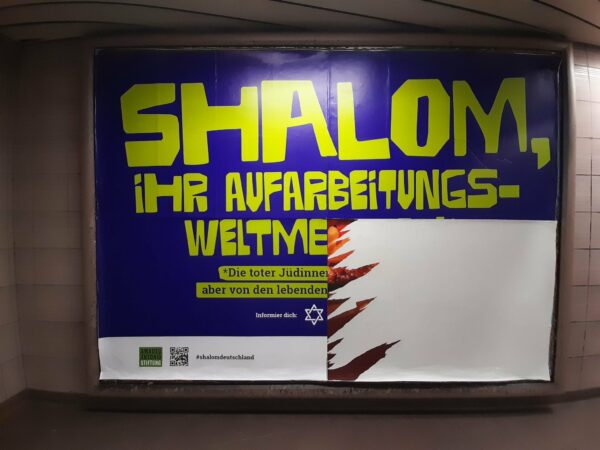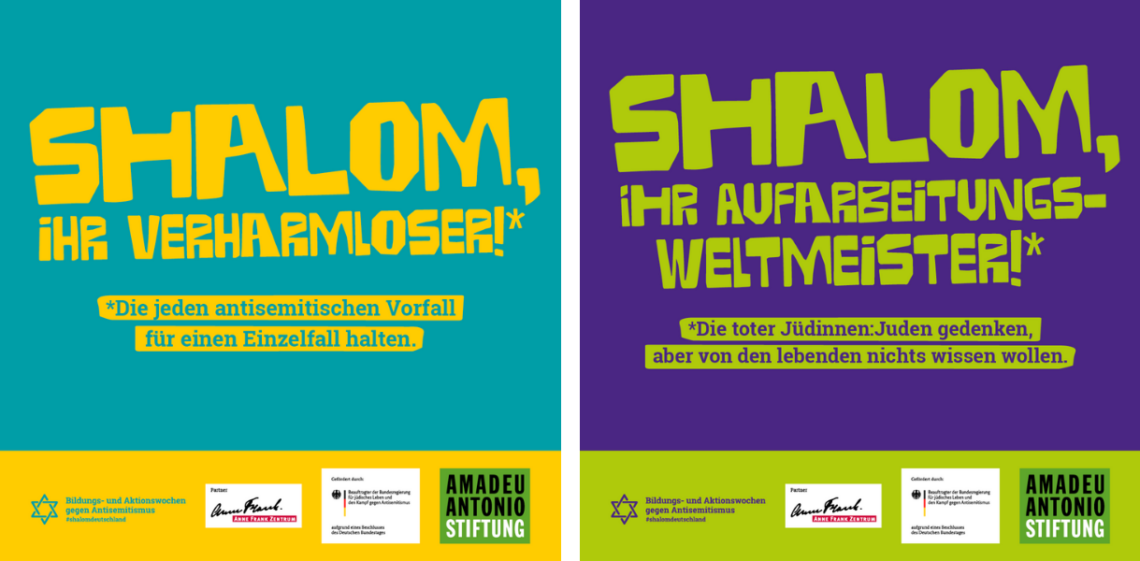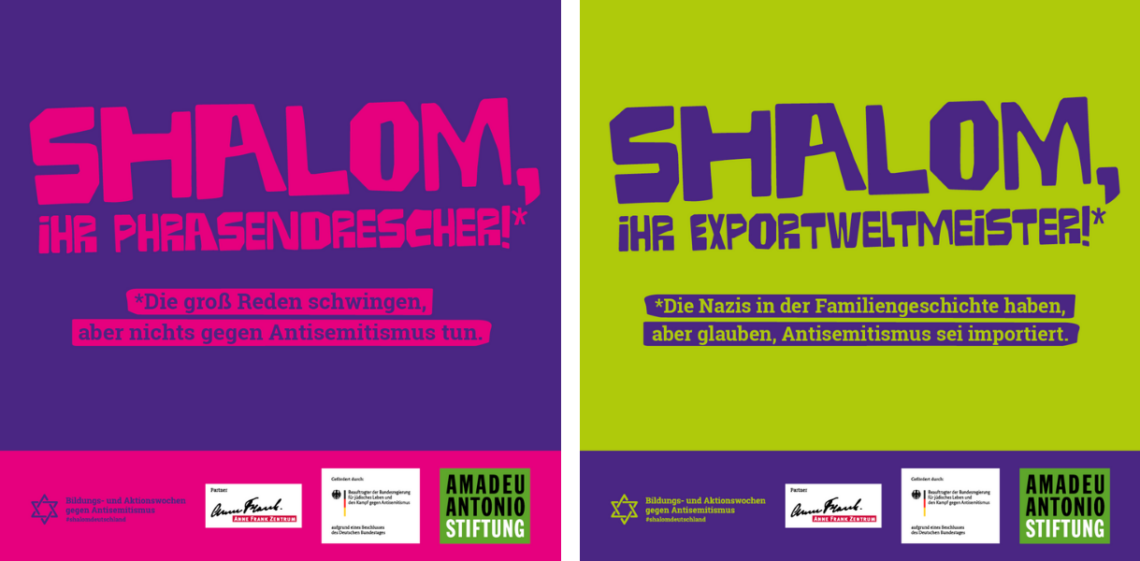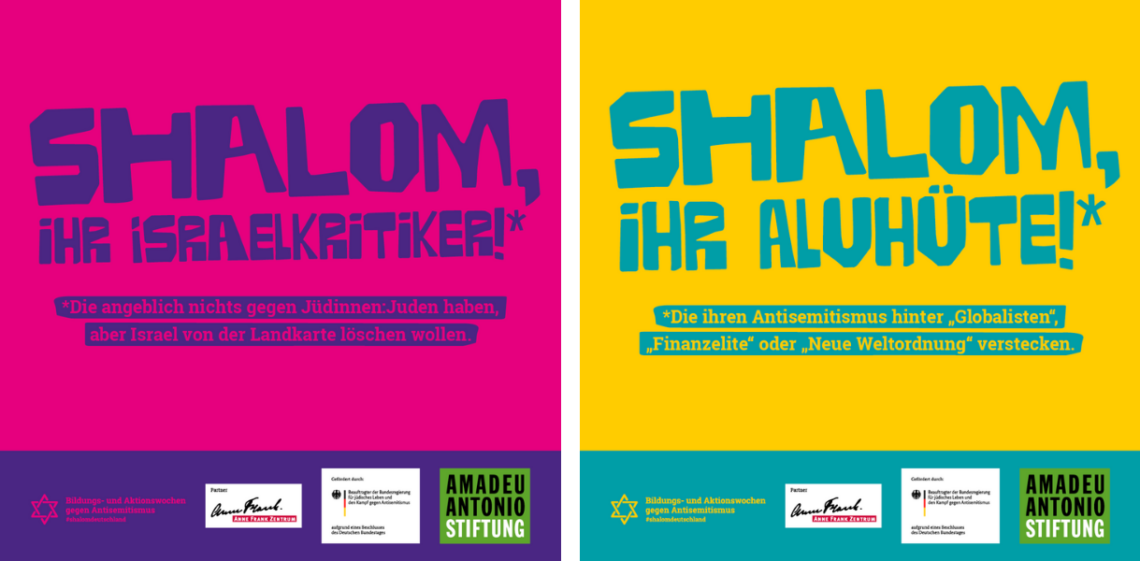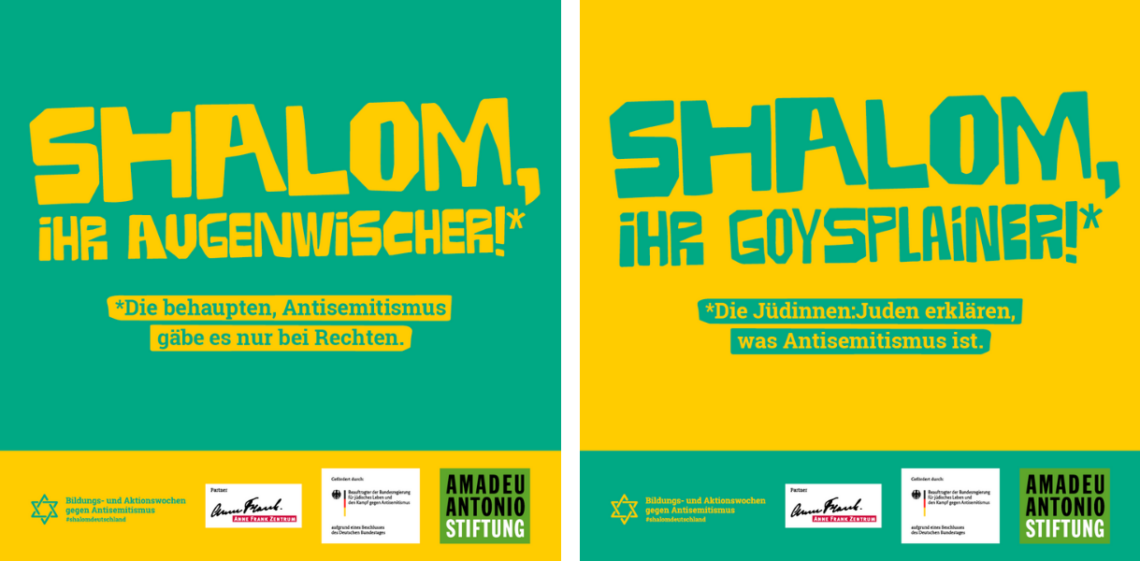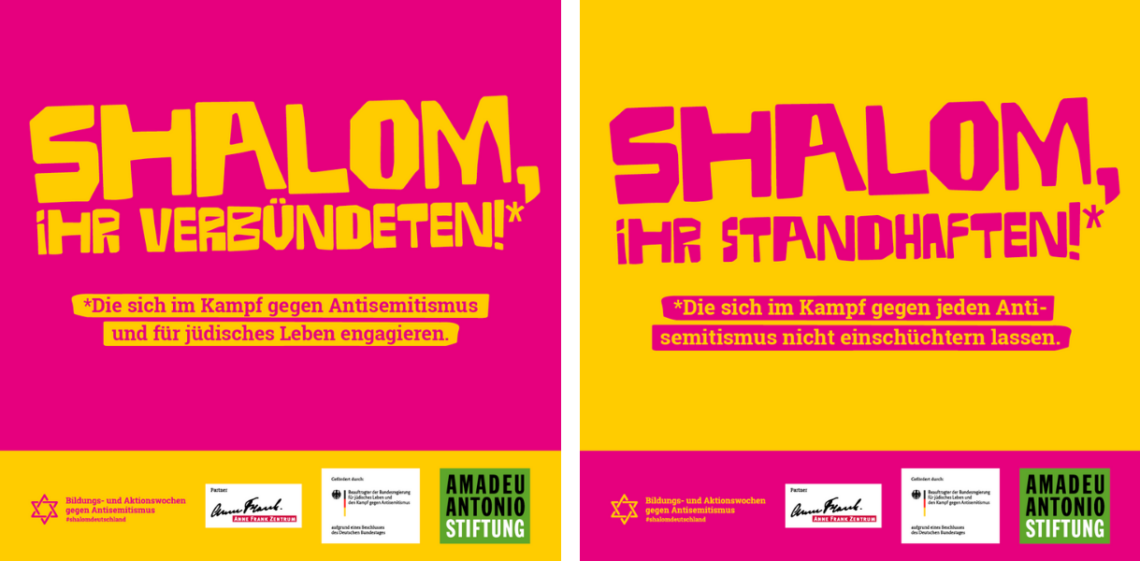Antisemitism: “The time of feel-good campaigns is simply over”
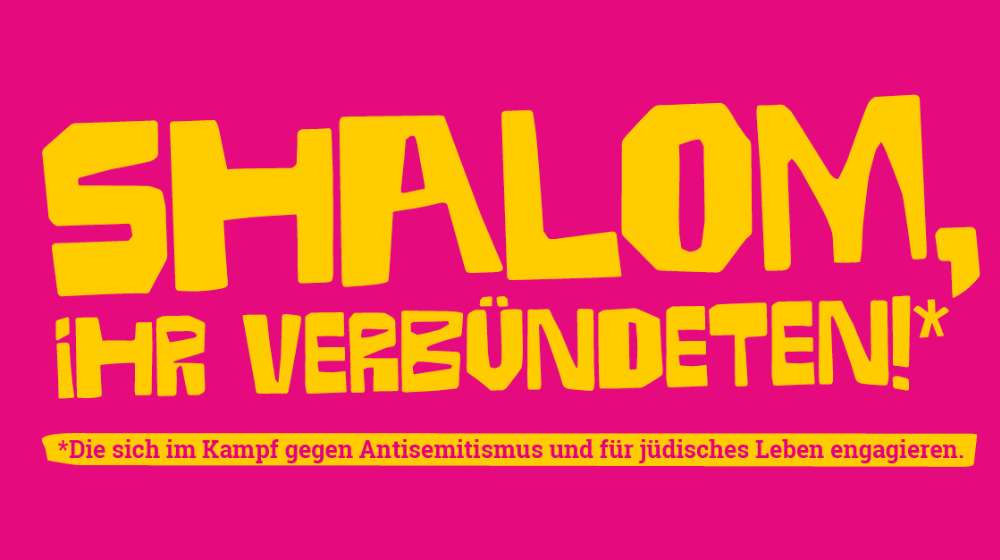
Between the second anniversary of the attack on a synagogue in Halle and the 83rd anniversary of the November pogrom, the Weeks of Education and Action at the Amadeu Antonio Foundation should once again show that antisemitism is not a legacy of National Socialism and is more topical than ever. We spoke with project manager Nikolas Lelle about why initiatives like these are still so important.
The Federal Association of Departments for Research and Information on Antisemitism (RIAS) registered 1,909 antisemitic incidents in Germany in 2020. With their Weeks of Education and Action against Antisemitism, the Amadeu Antonio Foundation and the Anne Frank Center would like to send a clear signal, with over 150 events throughout Germany and the nationwide poster campaign “Shalom Deutschland”.
In our interview, project manager Nikolas Lelle, who coordinates the Weeks of Education and Action with his team, explains why we need initiatives like these more than ever – and what each of us can do to be a good ally.
Your Weeks of Education and Action were launched on October 9. Would you say that they are more necessary now than in 2003, when they took place for the first time?
I would definitely say that. Although there were already plenty of conspiracy theories at the time, especially relating to 9/11, if we consider how the last few years have been, we can see various incidents that play a role in this development: For instance, the circumcision debate in 2012. If you talk to Jews, this was a huge game-changer for them because their religion and their existence was suddenly put to the test. The next turning point was definitely 2014 and the Gaza protests. And then I’d say there’s 2020 and the coronavirus protests. And not forgetting the anti-Israel protests in May this year, especially in North Rhine-Westphalia and Neukölln. This is why I’d say – and the figures from RIAS will also confirm this – that antisemitism has become more open and uninhibited over the last three years and people are taking to the streets more and more unscrupulously. I think something like these “unvaccinated” stars wouldn’t have happened to this extent five years ago.
I’ve read that even “Shalom Deutschland” posters from your Weeks of Action have been torn down. Was that something that you expected beforehand?
To be honest, we expect things like this, yes. We displayed posters in Berlin, Hamburg, Rostock, Stuttgart, Frankfurt, Cologne, Dresden, and Aue. In Aue because there were so many Querdenken demonstrations there. In the end, you don’t know the story behind it. However, to be honest, I don’t find it so surprising that someone tampered with posters showing a large “Shalom”.
But the time of feel-good campaigns is simply over and somehow we need to try to bang our fists on the table and make it clear that there are many different areas to tackle with regard to antisemitism. We received a great deal of positive feedback on the posters from our allies, such as from the Central Council of Jews in Germany and from Jewish communities. They’re thrilled that we’ve dared to do something like this – as they’re unable to put themselves in the firing line the way that we do.
You often write about the campaign that something really needs to change. What would be the first thing that would need to change for you?
There are so many things to say here. However, the first thing, which we also want to refer to with the campaign, is that antisemitism is not only a right-wing problem or a Muslim problem or a left-wing problem. There is simply an incredibly large number of settings that always choose to scandalize antisemitism when it’s about others. But you can only combat antisemitism if you can keep an eye on all of that and combat all of these different manifestations of antisemitism. And this also includes Israel-related antisemitism, antisemitism in an Islamist setting, and also the antisemitism of neo-Nazis. Or the antisemitism of the center, which has reared its head over the last year at these Querdenken demonstrations. It would be important to take antisemitism seriously as a problem in society as a whole, which we can only combat together.
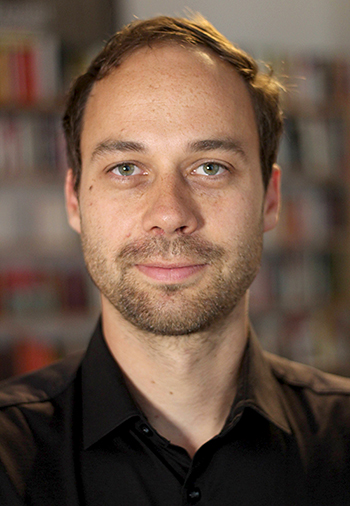
»It would be important to take antisemitism seriously as a problem in society as a whole, which we can only combat together.«
Nikolas Lelle, Project Manager Weeks of Education and Action against Antisemitism
The keyword is “together”: After all, you also collaborate with many other initiatives for the Weeks of Action. What is your impression, how is willingness to get involved developing here?
That’s really interesting: as we know, 2020 was a crazy year for everyone. In fall, I got the feeling that a great many people ran out of steam and they were doing less volunteer work. Everyone was simply busy with something other than, for instance, organizing a lecture for a students’ union executive committee. That’s completely different this year. I think that certainly also has something to do with the celebration year marking 1,700 years of Jewish life in Germany, but everyone is also waking up out of lockdown now. This has meant that we have once again received a great many inquiries – many more than we were actually able to accept.
How can I, as an individual, be a good ally to Jews in Germany?
Naturally, there are the classic methods: Organizing events and workshops to raise awareness. But it’s also important that, if you become aware of antisemitic incidents, you report them, such as with the RIAS. Even this is incredibly helpful, because it provides a realistic image of everyday antisemitism in Germany. The estimated number of incidents is really high. Many incidents are not reported, so they cannot be taken into account.
How can we, as the Arolsen Archives, do even more against antisemitism?
Firstly, give visibility to Jewish voices and perspectives. And that doesn’t just apply to the Arolsen Archives, but to all those who are at a kind of memorial site or documentation center in Germany. However, I get the feeling that many of them stay out of it when it comes to current politics. Many documentation centers do incredibly good work in Holocaust research and coming to terms with the Nazi past and perhaps also a little in the debates concerning the politics of remembrance, but the antisemitism of that time actually hasn’t gone away and it’s important that organizations of this kind also speak up and constantly attempt to make it clear: We have a problem and we need to tackle it together.
The Weeks of Education and Action against Antisemitism are taking place until November 9 – including with the Long Night of the Digital Memorial: On the anniversary of the November pogrom, we want to come together with students, universities, and universities of applied science to remember the victims of National Socialism and stand up for respect, diversity, and democracy. Please join in!

